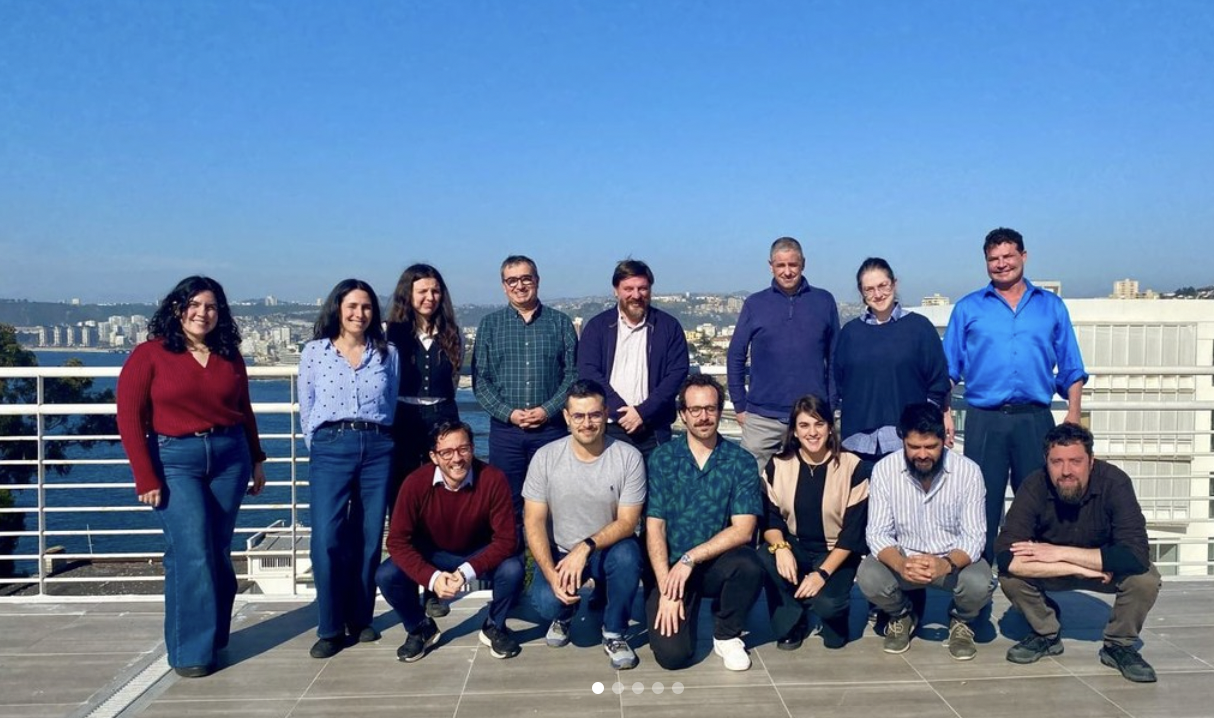
On October 17 and 18, the second edition of the Workshop on Regional Economics took place at the School of Business and Economics of the Pontificia Universidad Católica de Valparaíso (PUCV). The event was jointly organized by the Millennium Institute for Research in Market Imperfections and Public Policy (MIPP), the Millennium Nucleus for the Integral Development of Territories (CEDIT), and PUCV.
The workshop brought together prominent researchers to discuss various topics related to regional and territorial development.
The inauguration was held at the Fernando Alvarado Quiroga Auditorium. After the welcome remarks by Rodrigo Navia, director of the School of Business and Economics at PUCV, Mark Partridge, professor at Ohio State University and a renowned international regional economist, delivered the keynote lecture titled “Does cultural diversity matter for innovation? Empirical evidence from large-scale internal migration in China.” His presentation sparked an engaging discussion on the role of cultural diversity as a driver of innovation in regions receiving migrants, based on evidence from China’s significant interregional migrations in recent decades.
Throughout the first day, several thematic sessions addressed various issues such as the development of indigenous communities, regional inequality, and the migration of advanced human capital. Felipe Jordán (PUC) and MIPP researcher Dany Jaimovich (University of Talca – MIPP) discussed the effects of land restitution on the agricultural productivity of Chilean indigenous communities, while MIPP researcher Elisa Durán (University of Chile – MIPP) presented an analysis of a new database on the conflict between the State and the Mapuche people.
Additionally, Chiara Cazzuffi (Universidad Mayor) analyzed the impact of internal migration on the well-being of origin communities in Chile, Rodrigo Pérez (PUC) discussed how the unequal distribution of urban green areas affects wage disparities in Chilean cities, and Félix Modrego, academic at ENE PUCV, presented his work on potential spatial entrepreneurship traps in Chile.
The second day focused on regional aspects of education and environmental studies. It began with a presentation by Juan Pedro Eberhard (UNAB, Viña del Mar) on the factors influencing the migration of university students in Chile. Rocío Valdebenito (UAH) addressed the relevance of degree type and field of study in the migration of high school graduates.
Subsequently, Nathaly Rivera (University of Chile) discussed the effects of renewable energies on communities affected by environmental justice issues, and Carlos Chávez (University of Talca) presented experimental evidence related to the management of common resources in the presence of exclusion mechanisms.
MIPP researcher Dany Jaimovich highlighted that holding this second edition of the event in Viña del Mar (the first was in 2023 in Talca) aimed to bring together national researchers, mainly from regional universities but also from Santiago, working on regional topics to discuss their research. He noted the significance of having Professor Mark Partridge’s presence and collaborating with the CEDIT nucleus, as it was a new experience to organize the event jointly.
Jaimovich added that this time they incorporated topics related to indigenous economy and regional development, environmental issues, and regional inequalities, fostering many interesting conversations.
In his final assessment of the event, Félix Modrego from the School of Business and Economics at PUCV, who represented the local organization, stated, “For us, as the School of Business and Economics at PUCV, it was very significant to host an event co-organized by two Millennium Initiatives. We are very pleased to have had this mix of young and more experienced researchers presenting high-level research, where the regional theme, crucial for Chile’s current challenges, was the unifying axis.”
MIPP Chile 2025